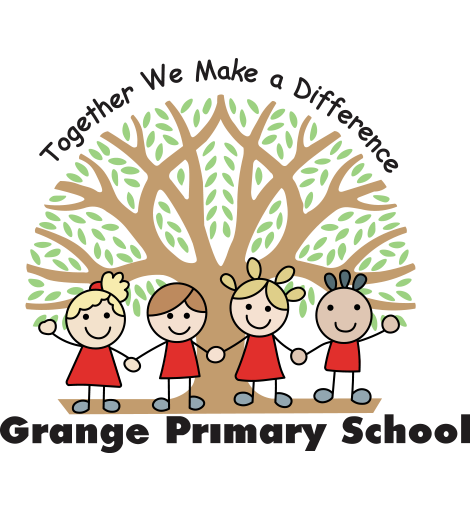Design & Technology

Welcome to the Design and Technology page of our school website.
Mrs O'Regan is the Subject Leader for this area of the curriculum.
D&T Curriculum Overview & Skills Progression 21-22
Design & Technology Curriculum Statement
Intent
Design and Technology is a fundamental part of our everyday lives. At Grange, we realise the importance of this subject and aim to promote learning in a way that promotes understanding and enjoyment.
Design & Technology gives children the opportunity to develop skills, knowledge and understanding of designing and making functional products It is a subject which encourages creativity and innovation. By exploring designs, including the skills and concepts which go into their creation, children have opportunities to replicate, test and improve their own ideas and those of others.
"If instead of keeping a child at his books I keep him busy in a workshop, his hands labour to the benefit of his mind"
(Rousseau 1762)
At Grange, the curriculum is planned to enable learner to combine practical skills with an understanding of aesthetic, social and environmental issues, as well as of functions and efficiencies of a range of designs. They are given opportunities to work and evaluate both as individuals and as part of a group.
Through our curriculum, children have opportunities to: learn new skills in a logical progression; to think creatively and critically evaluate; to talk about how things work and to record and refine their own ideas; to use technology to support designs; to select appropriate materials, tools and techniques; to work safely with a range of equipment; to experience satisfaction and pride when making their own products.
Implementation
The new EYFS Framework (2021) supports the development of children’s artistic and cultural awareness, which in turn supports their imagination and creativity. At Grange, we recognise the importance of regular opportunities to engage with the arts, enabling them to explore and play with a wide range of media and materials. The quality and variety of what children see, hear and participate in is crucial for developing their understanding, self-expression, vocabulary and ability to communicate through the arts. The frequency, repetition and depth of their experiences are fundamental to their progress in interpreting and appreciating what they hear, respond to and observe. The Early Years team ensure that children’s interests are followed, providing frequent interactions with adults and peers to move on learning. The adults regularly assess and refine learning opportunities to maximise engagement and learning outcomes.
Within KS1 & KS2, our Design and Technology curriculum is carefully planned so that children also have opportunities to explore and develop their own ideas and to evaluate, adapt and review their own work. This is done across a range of topics which include working with food, structures. mechanisms, woodwork, electrical circuits and textiles. Our Design & Technology curriculum links well with some other subjects and where appropriate we will ‘connect’ the curriculum – for example, with science for electrical circuits. This is an ideal way to provide real world opportunities.
We also look for opportunities to utilise experts and/or extend into extra-curricular clubs – such as our own School Cook, who supports with food technology. We also regularly link up with the local high school to access the technology department.
Teachers are encouraged to either ‘block’ their lesson sequences or to teach on a weekly basis – depending on which mode of delivery would result in better outcomes for learners. This is a professional decision made by teachers dependent on the skills and needs of their pupils. Sometimes, a series of focused, practical tasks to acquire specific knowledge and skills may be needed before learners can embark on designing and making a set product.
A sequence of learning may begin with research and evaluation of a product which then provides children with a stimulus for designing and making their own products. Designs are made with the end goal in mind, using findings from their research. Teachers then support children with evaluating their own products and the products of peers, so they can review and adapt where needed to improve a design. Opportunities are given, where appropriate, for individual work and collaborative projects.
.
Pupils are given opportunities to research and record relevant information where appropriate to meet a need/brief; take increasing responsibility for their own work.; critically evaluate their work and the work of others and suggest improvements.
The full range of skills and content is detailed on the Design & Technology Curriculum Overview and Skills Progression document. Planning is detailed on medium term plans – which clearly show the sequence of learning, links to prior learning and opportunities for connections across the curriculum along with links to the EYFS Framework 2021.
Impact
We assess the impact of our curriculum in a range of ways which includes:
- Summative assessment of learning
- Images of the children’s practical learning
- Children’s work saved onto their individual accounts or in teacher evidence files
- Children’s D&T books where they record some of their design ideas and reflections
- Reflective evaluation of lessons, (AfL) leading to review and adjustment where needed
- Interviewing the pupils about their learning (pupil voice) through formal and informal monitoring and through our RRSA committees
- Annual reporting to parents of standards across the curriculum
- Termly reporting to governors and attendance at governor Curriculum meetings
For the full National Curriculum programme of study click on the link below:
